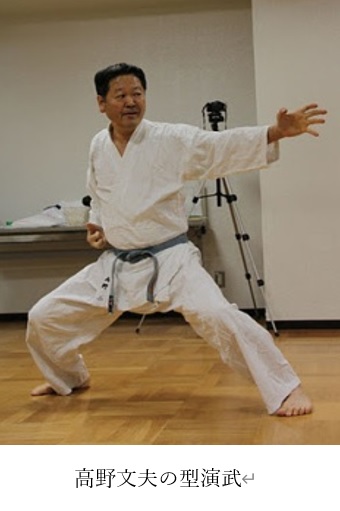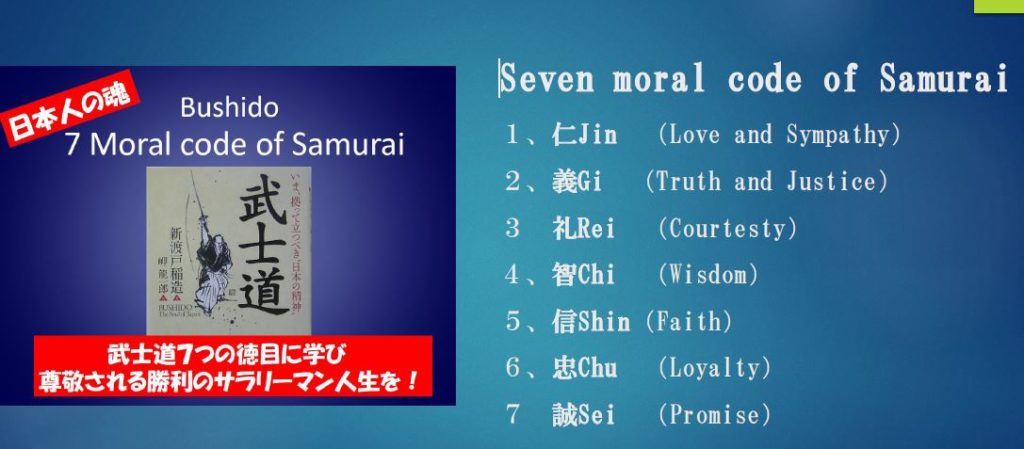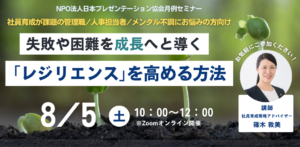プレゼン最前線2023年6月15日号

Why is it important to teach all people, especially those starting their careers, about the seven virtues of Bushido?
I will reiterate the point again, as it seems necessary.
Even my fellow martial arts practitioners recoil when the term “Bushido” is mentioned.
Even people in the martial arts world seem detached from Bushido, lacking an understanding of its essence.
There is no distinction between martial arts and sports anymore.
This is evidence of the influence of a culture focused on winning, losing, and personal gain, which has been skewed towards Western values.
So, what value does Bushido hold?
I want to discuss the seven virtues of Bushido, the beautiful way of life that flows at the core of the Japanese people.
If we reevaluate and internalize these virtues, there is no doubt that we can achieve a successful life.
Yes! I want Bushido to be reconsidered as a philosophy of success and as a law of attraction for happiness.
The reason is that successful salarymen who have reached positions like department heads,
executives, or company presidents tend to possess a certain level of charisma and have internalized the seven virtues of Bushido to some extent.

Finally,
The essence of martial arts lies in how we can get along with others,
how we can overcome conflicts and establish mutually beneficial relationships based on win-win outcomes.
In order to “surpass battles and coexist harmoniously,” what kind of communication should we engage in?
In fact, the spirit of Bushido, which the Japanese people have inherited and nurtured for generations,
forms the foundation of the way of life for many compassionate individuals.
However, those who cunningly take advantage of others are a different story.
These are individuals who possess the spirit of “osu,” enduring and sacrificing themselves for the sake of others.
Did you know that employees at Toyota Motor Corporation bow deeply as their title rises?
While regular employees bow with a slight nod of about 5 degrees, those at the department or section chief level bow with a respectful bow of 15 degrees.
It is said that executives and company presidents perform the most respectful bow, known as the 45-degree bow.
This information comes directly from my friend, who used to work as a secretary for a former president, Mr. Okuda, so it is not a fabrication.
Traditional top-tier Japanese companies such as Toyota, Panasonic, and Canon embody the proverb, “The rice plant that yields the most bows its head the lowest.”
It means that the more influential one becomes, the more humble they should be.
Unlike in Western companies where general executive employees earn around 7-8 million yen, while the CEO earns over 1 billion yen, there is a difference.
Don’t you think it’s absurd for a CEO to earn 100 times more in annual income?
However, traditional Japanese salarymen in established companies are different.
The difference lies in the fact that they are not working solely for the sake of money.
By engaging in the shared “work,” they are mutually promoting each other’s growth.
his “work” is a “life training” that elevates human beings.
The work of compassionate Japanese salarymen is not merely a transaction of “give and take” for financial gain.
It is rooted in the core of their hearts, aiming to bring joy and ease to others, and finding happiness in the reflection of that joy by living for the sake of others—a samurai spirit.


Together with my current karate training companions,
Thank you so much for
your kind reading!
- カテゴリー
- お知らせ


